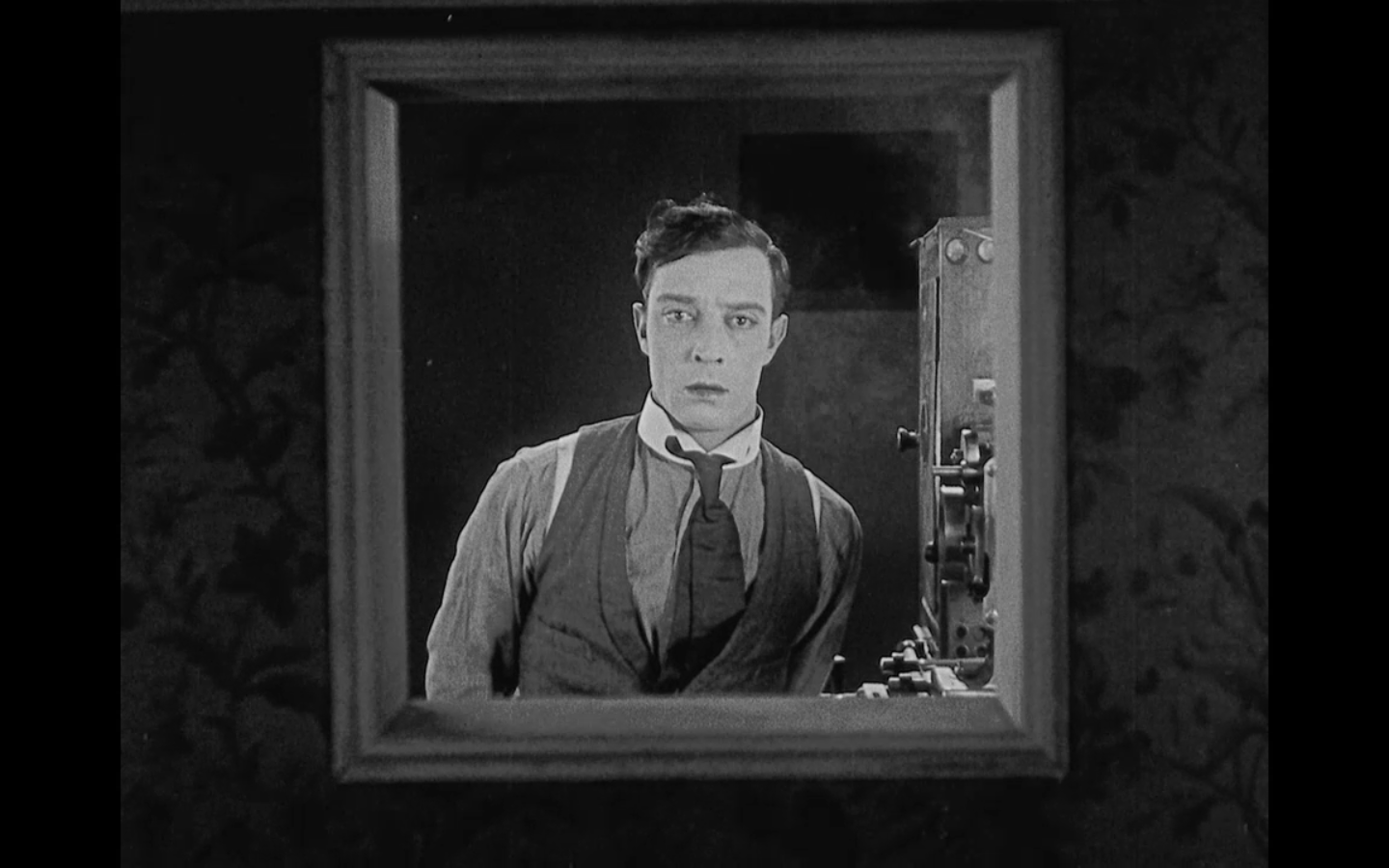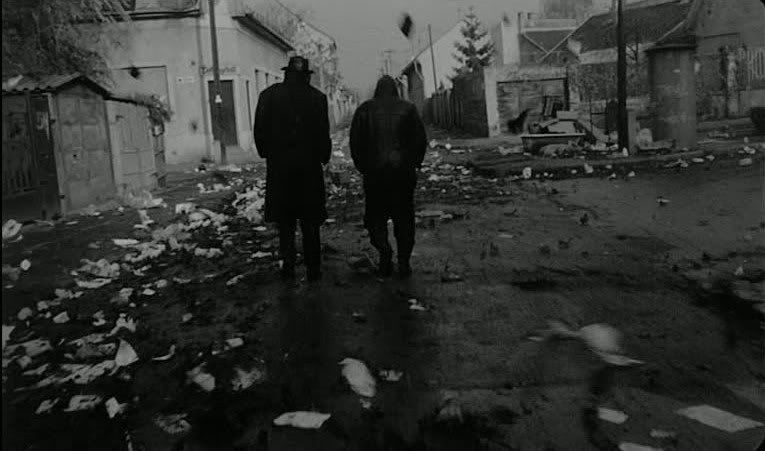I'd like to start a thread for my musings on films instead of starting new threads or commenting on old ones for my thoughts. What inspires me to write about films is usually an extreme, something I think is great, or something I think is terrible, hence the name, but I'm also interested in films that have an interesting reaction from this community, the critical film industry or the market at large and so those films (most of which I usually find a bit mediocre) will also make their way into this thread. Without further elaboration, I'd like to go into my first piece about Apichatpong Weerasethakul's (to be further referred to as Joe, his ludicrously simplified nickname) magnificent 2004 film, Tropical Malady.

Whenever I read something about Joe's films, I feel that the writers to quickly gravitate to the more obvious conventional tosses that he uses (the frequent second half shift, the deadpan supernatural events, the sometimes lingering black screen), all of which, while important, isn't what makes me love Joe. Joe is certainly one of the most interesting visual artists working today, but he's also perhaps even better at sound. Tropical Malady opens with some of his signature brand of offbeat humor with soldiers gathering to take a picture around a body that appears to have been mauled by a tiger (one of them says "make sure I look pretty for my girlfriend"). The soldiers then flirt with an operator over the radio who says she'll play a song for "all of you lonely guys." This is where Joe makes his first interesting and great move. As the soldiers disappear from the shot, the camera starts one of its brilliant slow pushes through some grass that had been mildly framing the shot, and some Thai pop begins to play, and unexpectedly non-diegetically, and there's a strange feeling of elevation, which is completed in the next wide-view shot. Like so many of the director's greatest moments, it's fairly indescribable why some Thai pop music I've never head before made this sublime impression. It's not exactly a clear match to the environment, which is a field within a jungle, nor is it great music, but from the slow building initial drum beat (something he'll importantly repeat later on) to the soothing singing it works unexpectedly, or perhaps because it's unexpected.
What follows begins part of the regular narrative that's obscurely related to this opening scene. It concerns the flirtations of a Thai army member, Keng, with a small town guy Tong (played by AW regular Sakda Kaewbuadee). Their scenes of flirtation are some of the most naturalistic portrayed in film. It addresses without explicitly addressing their feelings for each other, reservations, social climate, and familial issues all with poignancy. It's at once natural, simple, inconsequential, and heartbreaking to see Tong shy away from Keng repeatedly, held back by his fears. As many people know, Joe is a homosexual and often deals with homosexuality and thus this first half feels at least slightly autobiographical, which contributes to the film's graceful realism. And it's of course important, like I initially said, to note the sounds. Joe graces his film with beautiful sounds of forests, a mildly violent but relaxing rainy day, and the equally lulling sounds of motor vehicles. All of these sounds may not have a significance thematically but they work wonders for entering the film's rhythm.
I said that the film feels autobiographical, which is very true to a very specific point. At earlier points in the film, it may be hinting at what happens later. Tong's mother tells a folk tale about fishermen who become too greedy, less relevant in theme than in tone (it is, by the way, a wonderful story, one of the reasons I love Joe), the obvious breaking point in the film and the centerpiece of all critical analysis of the film occurs at nearly the midpoint. As the rhythm of the film is settled and you feel comfortable with the characters, Joe quickly pulls out the rug, at least for a brief time.

After a lovingly composed shot of Keng standing alone after Tong has rejected his flirtations again (which is always in a very shy or light manner), the screen goes black. Slowly and elegantly revealed is an old painting of a tiger that will serve as a backdrop for the ensuing narrative. The second half of the film grounds itself in both folklore and the first half of the film. Presumably Keng goes off into the woods in search of a cow and a man that went missing from his town. As he enters the forest, he is hunted by Tong, who transforms into a tiger at night. This may sound like supernatural thriller material, but Joe handles it with the same calmness as the rest of the film. It all feels grounded in the past in two different schemes. When the two do have their encounter, Joe anti-dramatizes it by eventually obscuring them from our view, refusing to cut towards the action.
This narrative bifurcation is what then makes the film be received at extreme ends. Many people citing the same nonsense that they had 3 years earlier at David Lynch's Mulholland Dr. (Joe's film is actually an appropriate kissing cousin of Lynch's work) of the film being inscrutable at the film, Tropical Malady is inscrutable only to the closed minded. The film is (like Mulholland Dr.) a clear eyed and intimate vision of love wholly throughout. Knowing of Joe's frequent narrative bifurcations (he's explained his love for contrast), I wasn't taken as aback as some people may have been at the film's shift. But at that point in the film, I was so engrossed in the film and had such confidence in Joe's filmmaking that he could've kept the screen black with nothing but cricket sounds and I would've watched until the end, but it's to his credit that he so lightly intertwines these stories which seem at first in contrast, but very quickly the second story reaches a sublime climax that coincides (thematically, not physically) with the first half. It's masterful filmmaking. A half told love story told twice, Tropical Malady is a wonderful film.

Whenever I read something about Joe's films, I feel that the writers to quickly gravitate to the more obvious conventional tosses that he uses (the frequent second half shift, the deadpan supernatural events, the sometimes lingering black screen), all of which, while important, isn't what makes me love Joe. Joe is certainly one of the most interesting visual artists working today, but he's also perhaps even better at sound. Tropical Malady opens with some of his signature brand of offbeat humor with soldiers gathering to take a picture around a body that appears to have been mauled by a tiger (one of them says "make sure I look pretty for my girlfriend"). The soldiers then flirt with an operator over the radio who says she'll play a song for "all of you lonely guys." This is where Joe makes his first interesting and great move. As the soldiers disappear from the shot, the camera starts one of its brilliant slow pushes through some grass that had been mildly framing the shot, and some Thai pop begins to play, and unexpectedly non-diegetically, and there's a strange feeling of elevation, which is completed in the next wide-view shot. Like so many of the director's greatest moments, it's fairly indescribable why some Thai pop music I've never head before made this sublime impression. It's not exactly a clear match to the environment, which is a field within a jungle, nor is it great music, but from the slow building initial drum beat (something he'll importantly repeat later on) to the soothing singing it works unexpectedly, or perhaps because it's unexpected.
What follows begins part of the regular narrative that's obscurely related to this opening scene. It concerns the flirtations of a Thai army member, Keng, with a small town guy Tong (played by AW regular Sakda Kaewbuadee). Their scenes of flirtation are some of the most naturalistic portrayed in film. It addresses without explicitly addressing their feelings for each other, reservations, social climate, and familial issues all with poignancy. It's at once natural, simple, inconsequential, and heartbreaking to see Tong shy away from Keng repeatedly, held back by his fears. As many people know, Joe is a homosexual and often deals with homosexuality and thus this first half feels at least slightly autobiographical, which contributes to the film's graceful realism. And it's of course important, like I initially said, to note the sounds. Joe graces his film with beautiful sounds of forests, a mildly violent but relaxing rainy day, and the equally lulling sounds of motor vehicles. All of these sounds may not have a significance thematically but they work wonders for entering the film's rhythm.
I said that the film feels autobiographical, which is very true to a very specific point. At earlier points in the film, it may be hinting at what happens later. Tong's mother tells a folk tale about fishermen who become too greedy, less relevant in theme than in tone (it is, by the way, a wonderful story, one of the reasons I love Joe), the obvious breaking point in the film and the centerpiece of all critical analysis of the film occurs at nearly the midpoint. As the rhythm of the film is settled and you feel comfortable with the characters, Joe quickly pulls out the rug, at least for a brief time.

After a lovingly composed shot of Keng standing alone after Tong has rejected his flirtations again (which is always in a very shy or light manner), the screen goes black. Slowly and elegantly revealed is an old painting of a tiger that will serve as a backdrop for the ensuing narrative. The second half of the film grounds itself in both folklore and the first half of the film. Presumably Keng goes off into the woods in search of a cow and a man that went missing from his town. As he enters the forest, he is hunted by Tong, who transforms into a tiger at night. This may sound like supernatural thriller material, but Joe handles it with the same calmness as the rest of the film. It all feels grounded in the past in two different schemes. When the two do have their encounter, Joe anti-dramatizes it by eventually obscuring them from our view, refusing to cut towards the action.
This narrative bifurcation is what then makes the film be received at extreme ends. Many people citing the same nonsense that they had 3 years earlier at David Lynch's Mulholland Dr. (Joe's film is actually an appropriate kissing cousin of Lynch's work) of the film being inscrutable at the film, Tropical Malady is inscrutable only to the closed minded. The film is (like Mulholland Dr.) a clear eyed and intimate vision of love wholly throughout. Knowing of Joe's frequent narrative bifurcations (he's explained his love for contrast), I wasn't taken as aback as some people may have been at the film's shift. But at that point in the film, I was so engrossed in the film and had such confidence in Joe's filmmaking that he could've kept the screen black with nothing but cricket sounds and I would've watched until the end, but it's to his credit that he so lightly intertwines these stories which seem at first in contrast, but very quickly the second story reaches a sublime climax that coincides (thematically, not physically) with the first half. It's masterful filmmaking. A half told love story told twice, Tropical Malady is a wonderful film.
__________________
Mubi
Mubi
 If you care to read and comment, my post is
If you care to read and comment, my post is 










